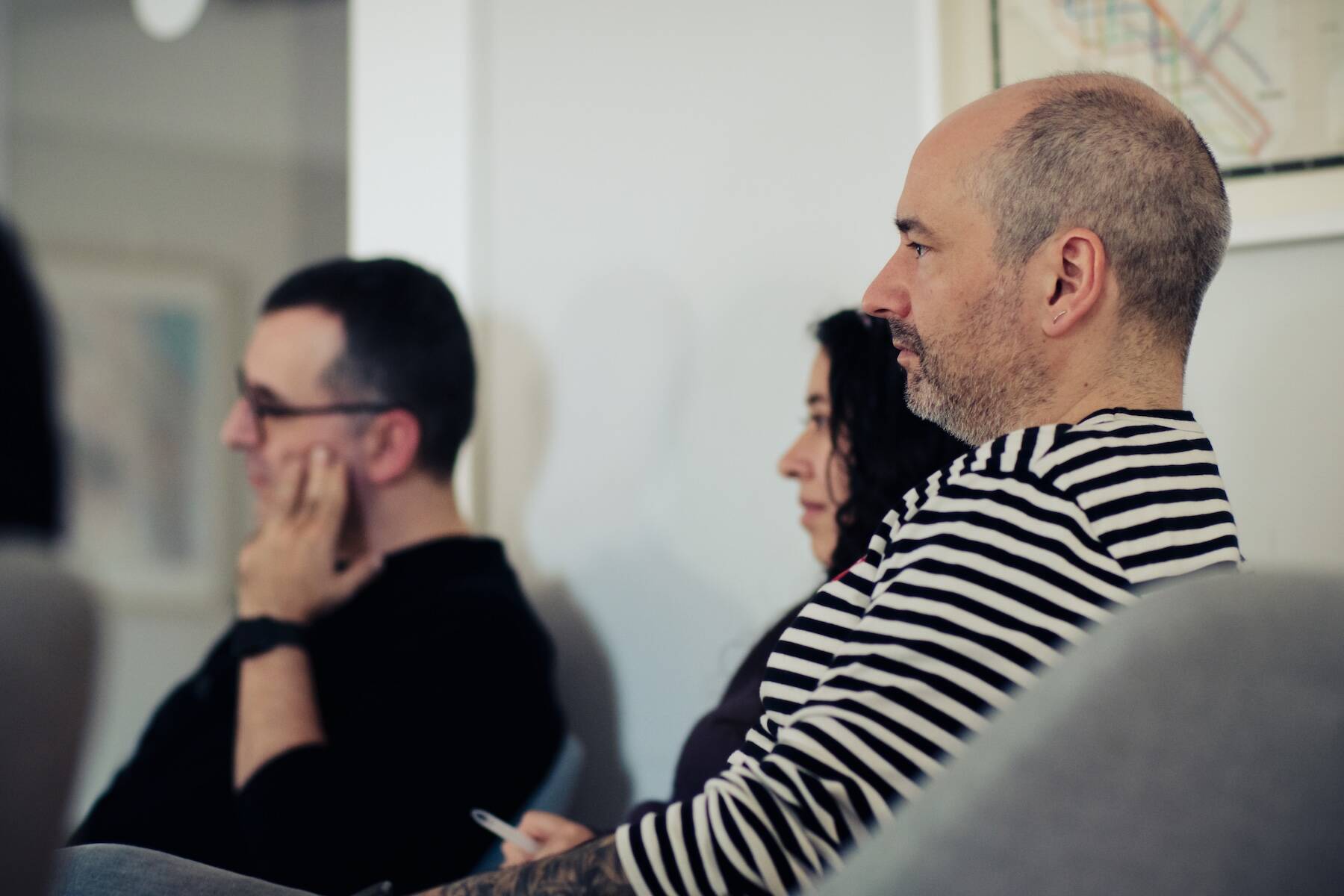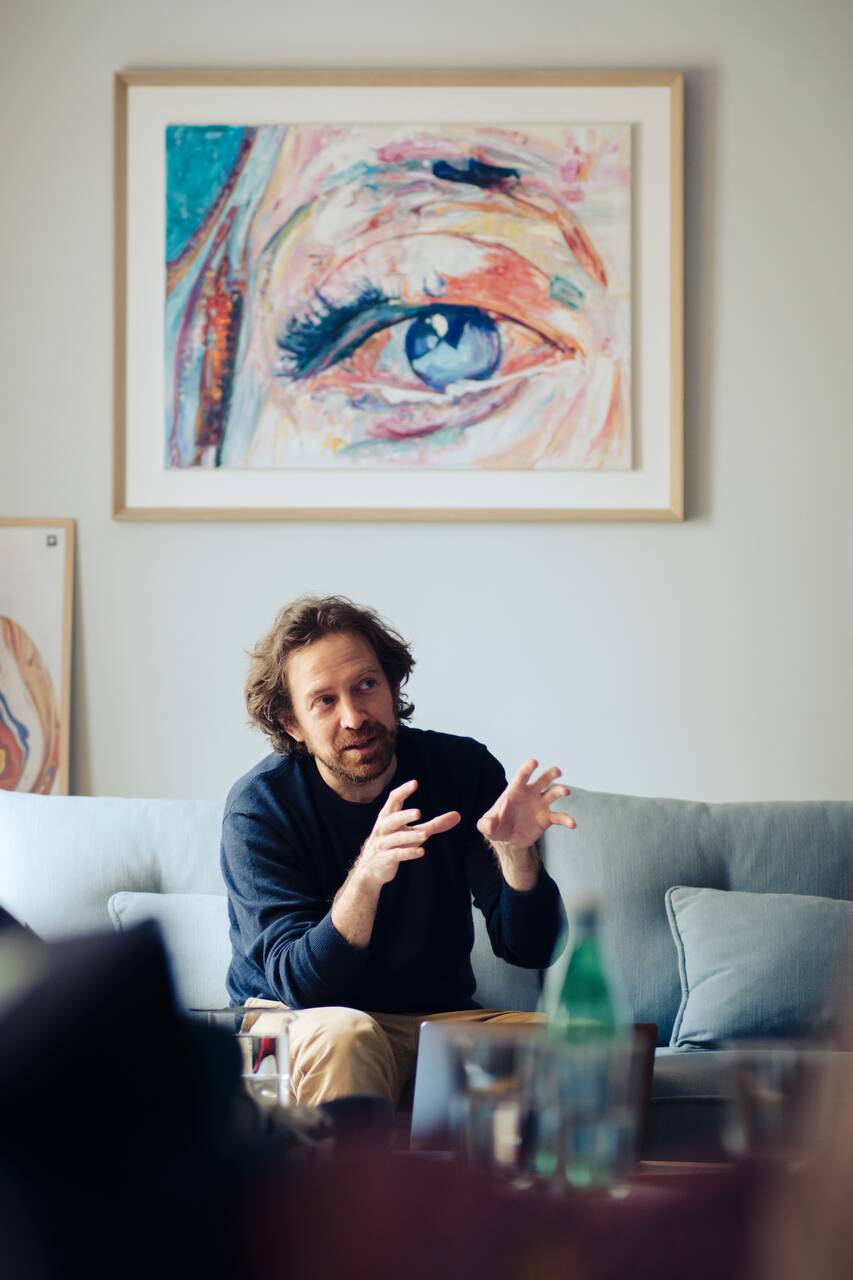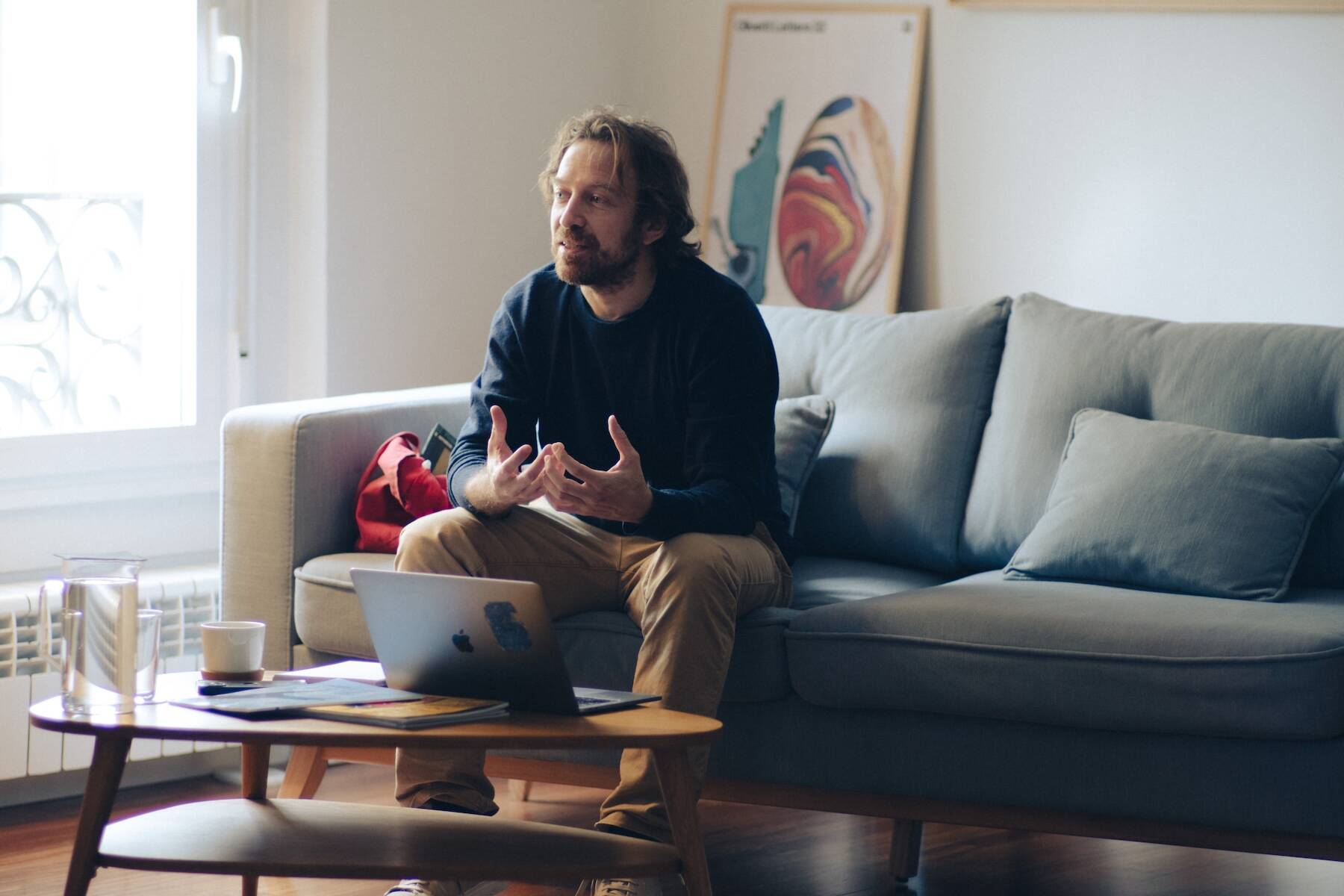Language and craft with Daniel Gascón
At Tramontana's product management program, I like to strike a balance between my own authorship—there's no right or wrong way to invent and develop digital products, although there are many ways to fail—and the perspective of others.
So far, I've found the balance by bringing in one guest for each thematic block, with the exception of the first one, which I dedicate to what I consider the fundamentals.
Since there are five blocks, we usually have four guests.
 We don't bring them in just for that day.
We don't bring them in just for that day.
That would be too cold and more like a masterclass format or something, which is not what I'm looking for.
They're built into the Notion workspace beforehand, so they can meet the people who are actually in the program; You can see all the content, discussions, exercises, and use cases we're adding to this space; in short, you can approach your session that day with a familiarity that helps you better select what you want to tell.
This past Friday, we welcomed Daniel Gascón to close out the block we dedicate to stories, as a centerpiece of digital product development.
He was preceded by Pelayo Arbués, with whom we greatly enjoyed understanding the many challenges that arise around data in digital products, and sharing good anecdotes from his work as Head of Data at idealistic.
 Daniel Gascón's participation was wonderful.
Daniel Gascón's participation was wonderful.
His work as a writer, cartoonist, translator and editor of Free Letters allowed us to gain insight into his sharp reflections on language and his experienced thoughts on the craft and the media.
We really enjoyed scrolling through the vignettes in his book, Fake News, as he explained what the creative process typically looks like: sometimes the line leads to the column; other times, the column leads to the panel; and other times, it all begins with a voice recording that later finds its own realization.
This last point resonated a lot, because starting stories by telling them out loud makes a lot of sense in the "scene-telling" exercises we often do throughout the program: recounting your projection of how something will work benefits greatly from telling it in the form of scenes, because you're forced to emphasize context and interaction.
Whenever you bring in people who aren't strictly from the industry, there's a shadow of doubt among both the people participating in the program and the guest.
"What can I tell people who work in digital businesses?" they often think.
"What can a writer tell people who often have to deal with a backlog or the requirements of a feature?" they think on the other side.
Soon, these questions fade away.
Both sides discover the wealth of interesting things that emerge at the intersection of their activities, and sometimes even revealing revelations occur: Daniel Gascón, incorporated into Notion and during the session itself, gradually discovered that the program's approach, associating digital products with companies like Pixar—where the importance of stories comes in—is not the norm.
"I thought you guys worked in a creative environment like Pixar's," he continued, while the rest of the people smiled, aware of how far removed that perspective often is from the industrialism and the factories where the organizations we work often operate.
[ ](https://world.hey.com/inigo/c08368b0/blobs/BAh7BkkiC19yYWlscwY6BkVUewdJIglkYXRhBjsAVGwrB1rDm XhJ Ighwd "Download DSC07217.jpg")
](https://world.hey.com/inigo/c08368b0/blobs/BAh7BkkiC19yYWlscwY6BkVUewdJIglkYXRhBjsAVGwrB1rDm XhJ Ighwd "Download DSC07217.jpg")